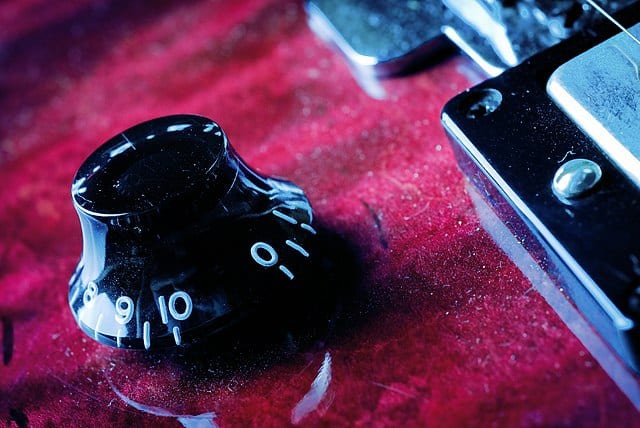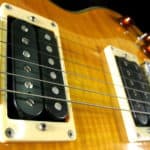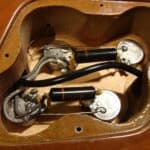There is often some confusion about the differences between lowering the pick-up output on the guitar compared to lowering the guitar volume on the guitar amp.
Although both lowering guitar volume and lowering pickup output does result in a lower volume level of the guitar, both methods can create different sounds and different volume levels, and they both have various possibilities of use depending on the guitar players’ desires and the tones that they are chasing.
In this article, I will talk about the main differences between these 2 alternatives and their effects on your sound.
After leaving this page you will have a clearer idea about if lowering your guitar’s volume is the same as reducing pickup input.
Are you ready to get started?
Let’s go!
Would lowering the volume on your guitar equal a lower output?
With a traditional circuit built inside the guitar, the result of lowering the volume on the guitar would definitely equal a lower output but it comes with other changes in tone too.
Most players will notice that as you start to roll off the volume knob, you will notice a loss in treble or as you prefer, high frequencies but not in the same way as the tone knob.
The treble loss from the volume knob is much more subtle and comes with a loss of volume rather than on its own with the tone knob.
Why it is not the same in many cases?
If the volume knob is lowered on the guitar, it will result in a treble cut that is noticeable for more experienced players with trained ears to recognize the tonal change.
However, if the volume is rolled off on the guitar amp or in a DAW for production, there is absolutely no treble loss or any kind of tonal change like the volume knob on the guitar. Any volume change outside of the physical guitar body will only result in purely decibel change.
Is there a way of recovering the loss in treble when lowering guitar volume?
Most guitars of value from $100 to $800 will likely have nothing extra built into them to help recover the loss of treble when lowering guitar volume.
However, guitars of higher value such as the well-known Fender Professional Series Stratocaster ($1800) will usually come with treble bleed circuits built into the electronics.
This stops the loss of treble happening when lowering the guitar volume so that it sounds more natural when rolling off the volume knob. It also helps professional guitar players make use of the volume knob to play tones with less gain without adjusting gain controls on the amp that they are using in a live situation.
Can you permanently lower the output of a pickup?
A common method of permanently lowering the output of a pick-up involves using the screws around the base of the pick-up to lower its position below the strings.
This is something that can be requested from a guitar technician if you do not feel comfortable with DIY jobs on your own guitar.
The result of this method would help you permanently lower the output of the pick-ups if that is something you desire.
However, the only sacrifice with this method is that it would also make the pick-ups sound brighter because the pick-ups would be further away from the strings.
Does pickup output determine how it sounds?
This depends entirely on how much wire has been wrapped around the coil of the pick-up.
It seems to be generally advised that using larger wires to be wrapped around the coil is more beneficial to the guitar tone because if the same amount of smaller wires were used, it would result in more resistance which is what you do not want.
If there is too much resistance, the overall volume could get to a point of no further increase and the tone would continue to become darker. It is much easier to darken a tone than it is to brighten it without sounding too unnatural and artificial.
To summarise, a pick-up can definitely determine how the guitar will sound but as long as it is being set up correctly, it should sound great.

Hello there, my name is Ramiro and I’ve been playing guitar for almost 20 years. I’m obsessed with everything gear-related and I thought it might be worth sharing it. From guitars, pedals, amps, and synths to studio gear and production tips, I hope you find what I post here useful, and I’ll try my best to keep it entertaining also.





